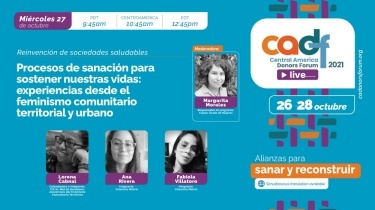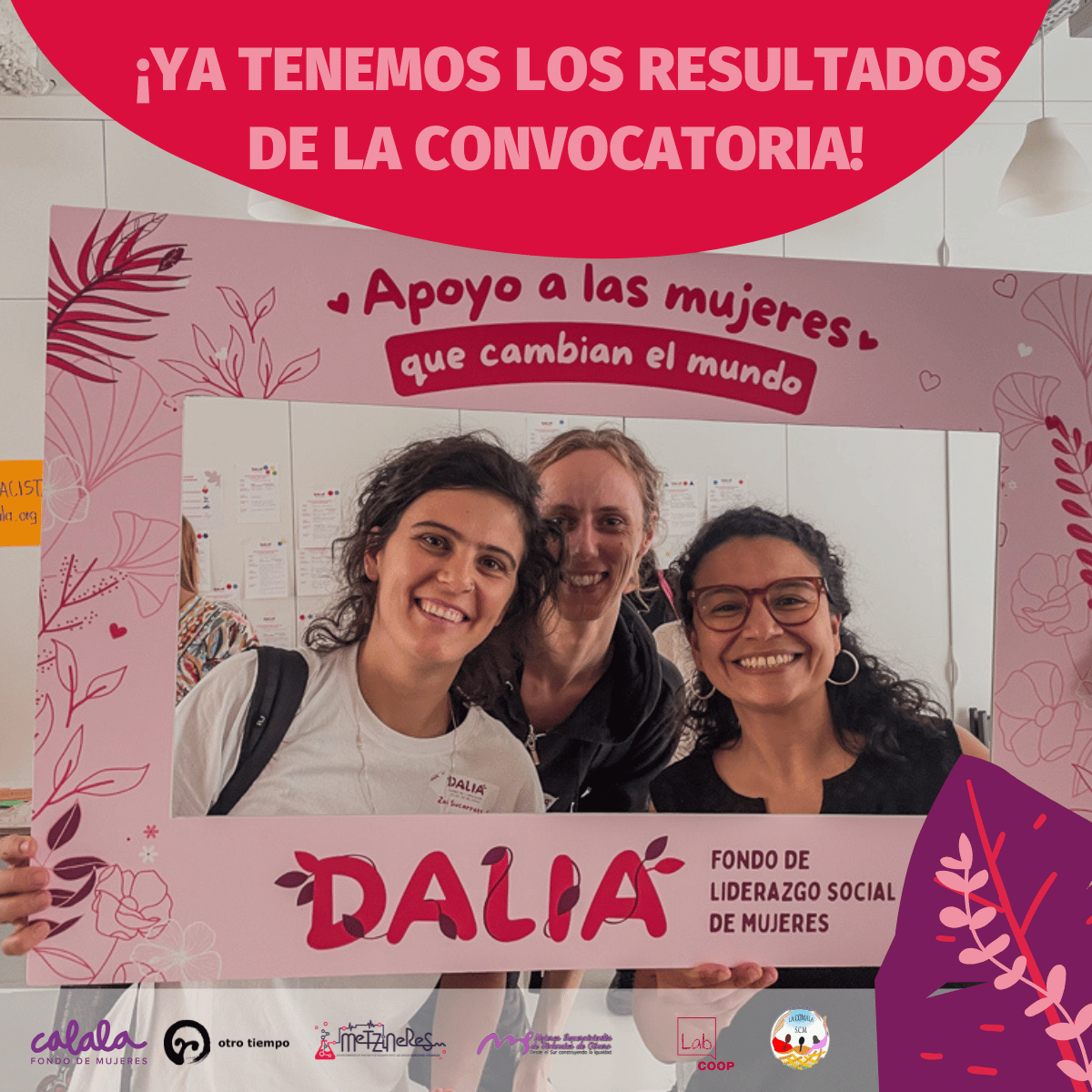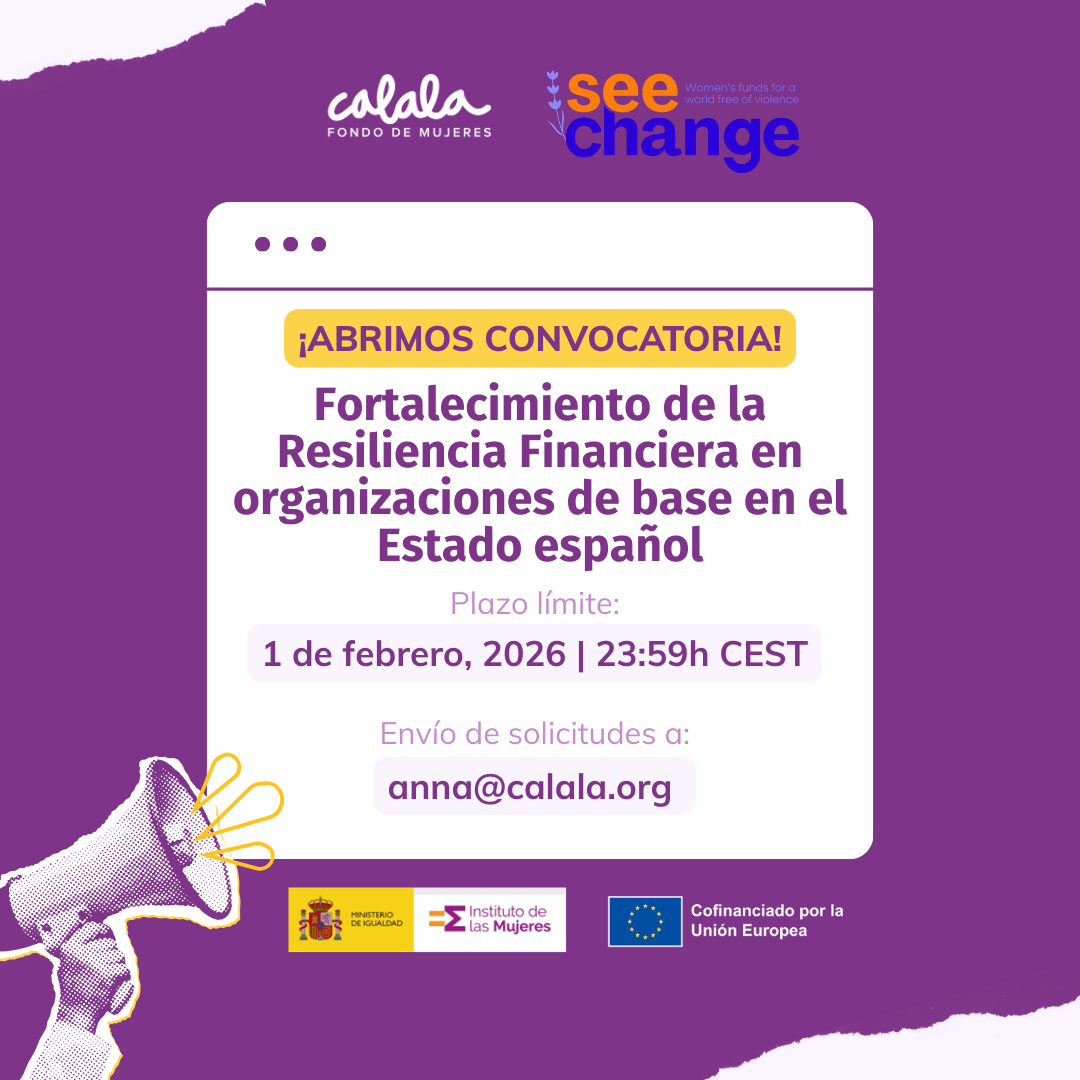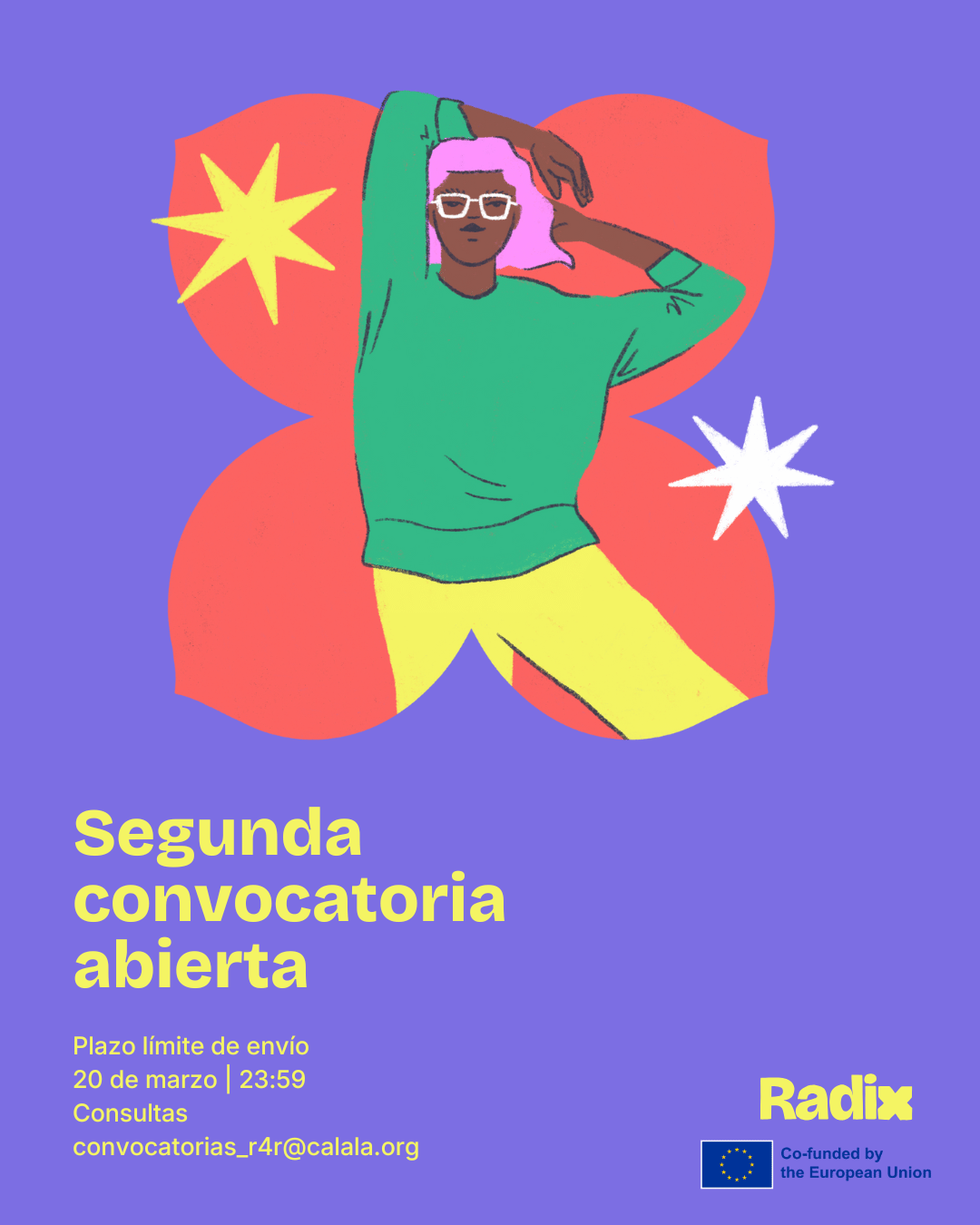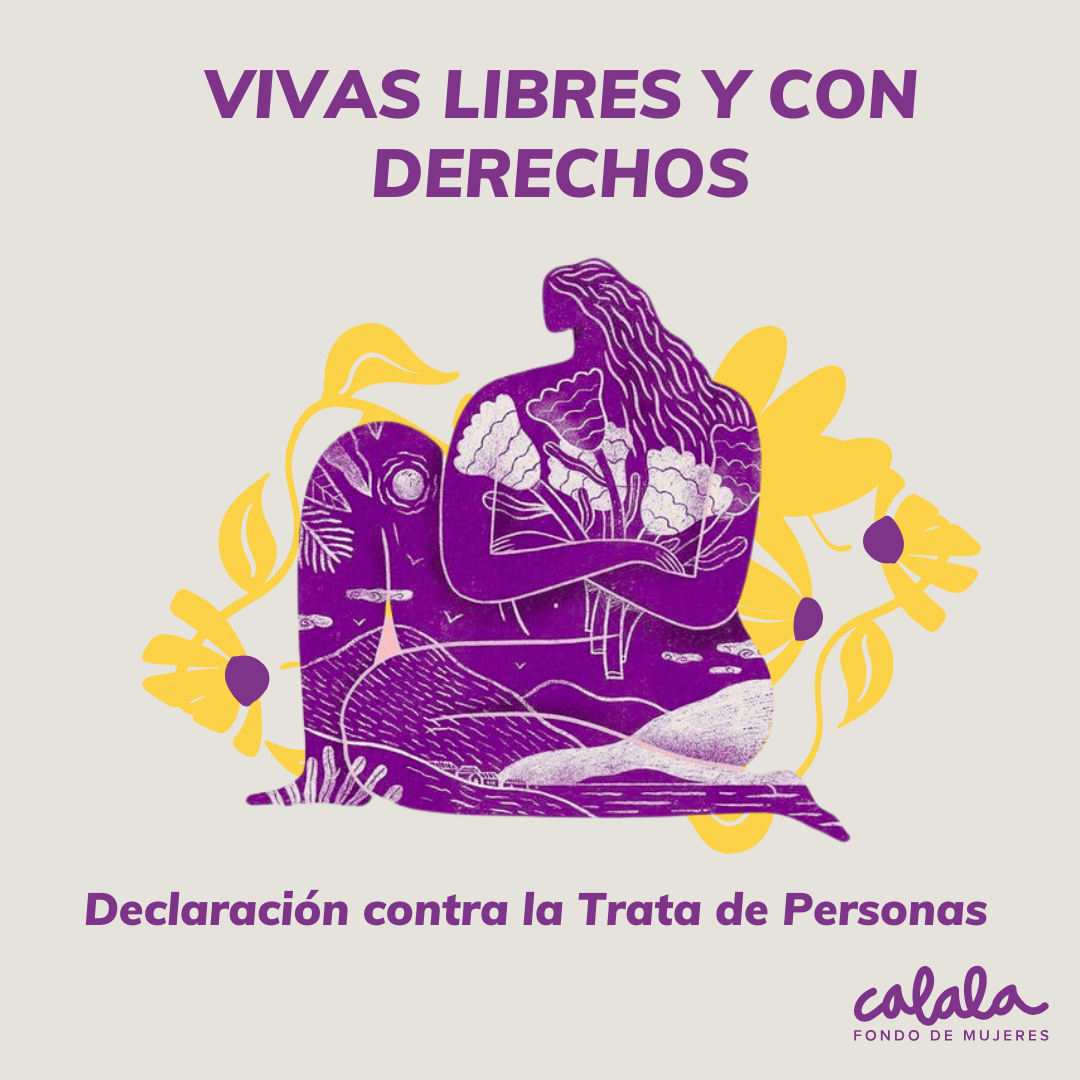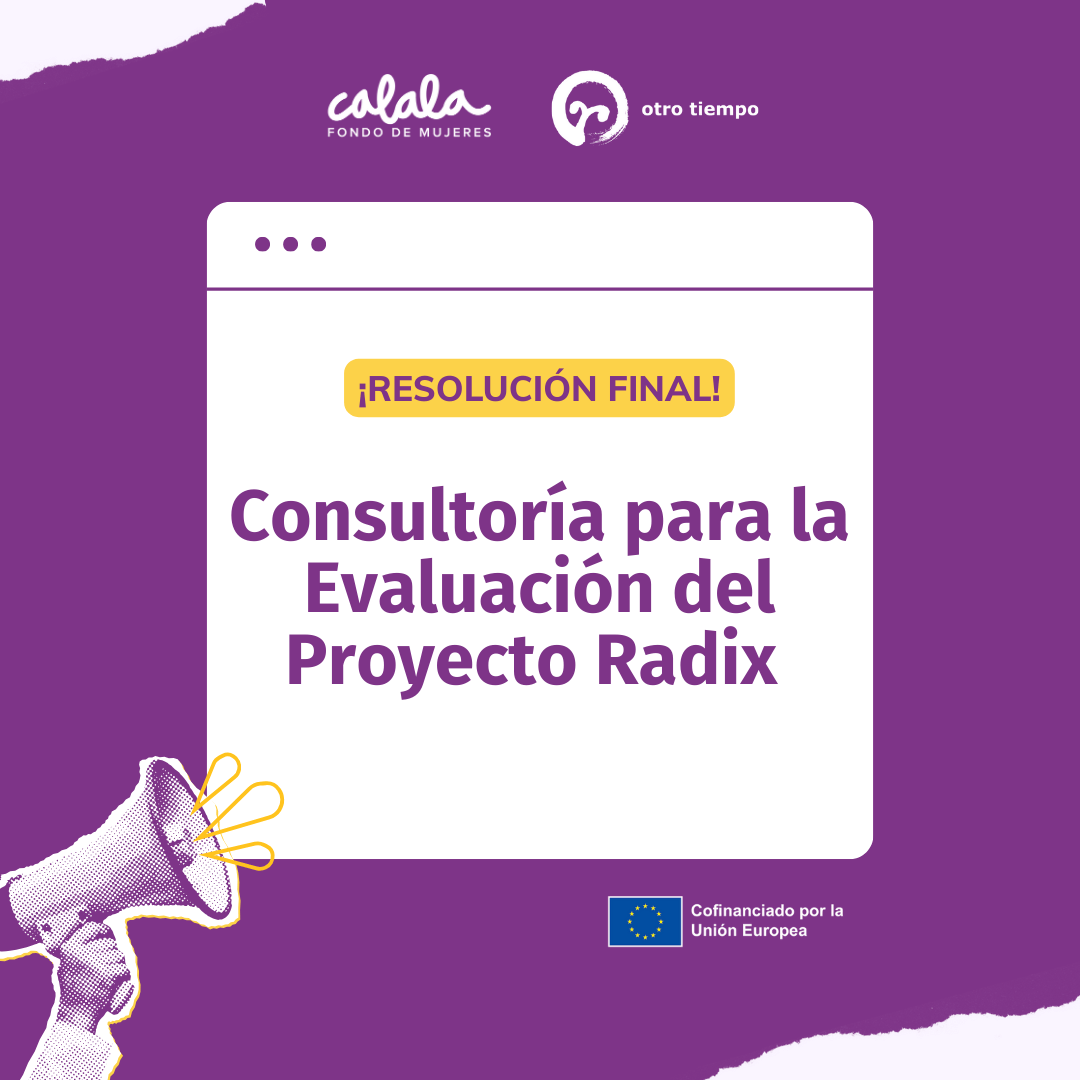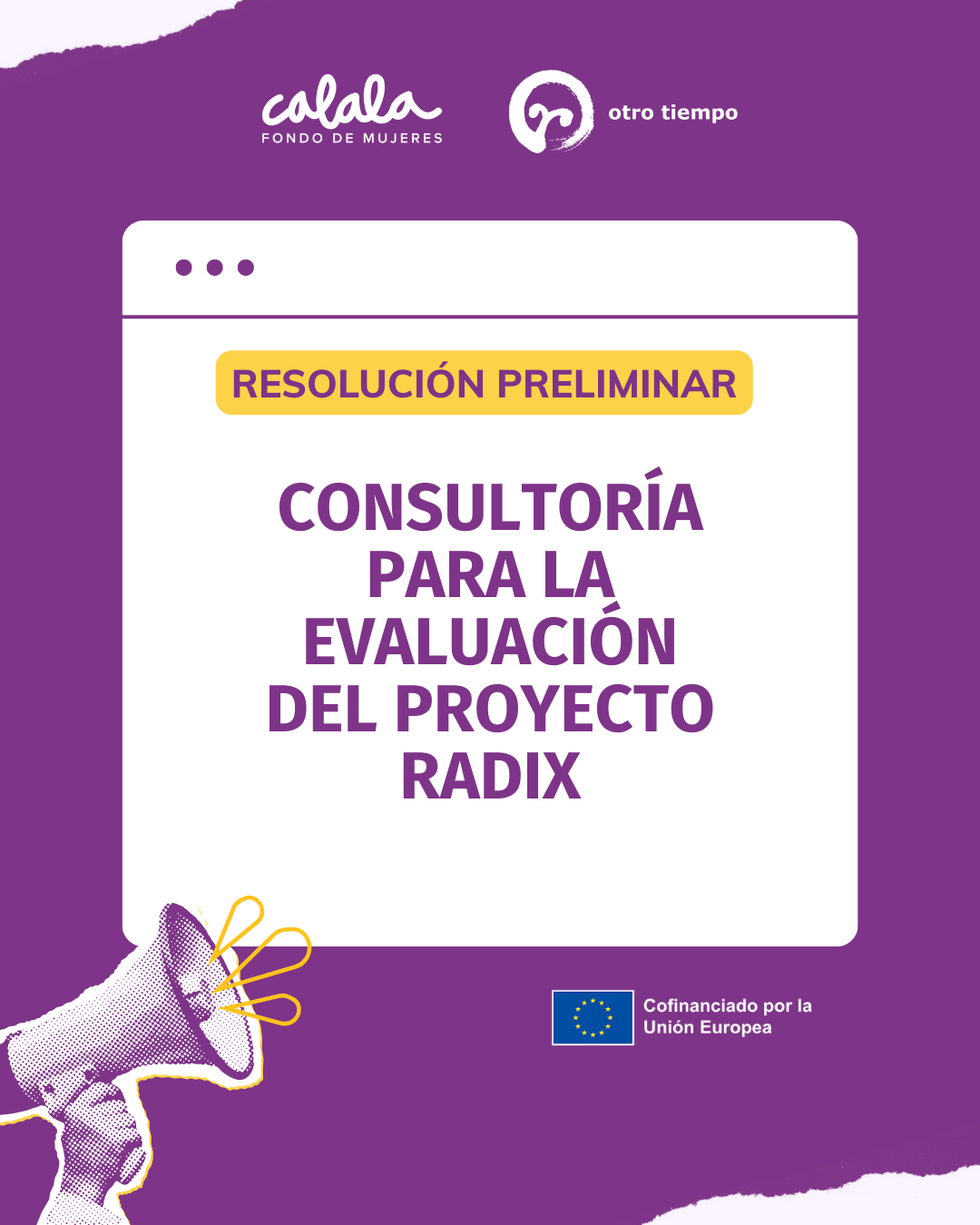On 27 Oct. we moderated the session “Healing processes to sustain our lives: Experiences from territorial and urban community feminism”.”
Transcript of the presentation by our colleague Margarita Morales
A loving embrace to all of you, and welcome to this space for dialogue and reflection. I am Margarita Morales, programme manager of Calala Fondo de Mujeres and I will be moderating this space.
I am joined by Ana Rivera, Fabiola Villatoro and Lorena Cabnal. All are well-known members of their communities in Honduras and Guatemala. They are part of the collectives that Calala accompanies in Central America. And, precisely, in this space we will talk about the healing experiences that they have promoted in their collectives.
Calala is based in Spain, but the idea to create it was born in Central America.
As you know, Calala is a women's fund based in Spain, but the idea for its creation was born in Central America. Honouring this origin, we have been mobilising flexible (and some not as flexible as we would like) resources for the Central American feminist movement for more than 10 years.
Our main supports have been for Sexual and Reproductive Rights, Women Human Rights and Territorial Defenders, young women's groups, LGTBIQ+ and indigenous women. Also in Spain, we mobilise resources mainly for migrant women's groups, especially from Latin America.
In these more than 10 years working in the Central American region, we have learned to always listen.
In these more than 10 years working in the Central American region, Calala has learned many things, but fundamentally we have learned to listen. Always listening to the defenders and activists who are experiencing adverse situations first hand, or the need to transform reality towards something more egalitarian and just.
We have learned that the women's movement is the most relevant actor in achieving women's rights. And that this requires activists, groups and movements to be healthy, confident, sustainable and influential. For all this to happen, it takes a lot of effort, creativity, commitment, hard work, love, health and dedication from all of them. Despite all this, it is not enough.
As funders, let's invest in the well-being of women human rights defenders and activists.
Financial and in-kind resources are also needed, but above all, flexible resources are needed, based on the confidence that each of us is contributing to social change where we can.
That is what this session is about, an invitation to us as funders to invest in the wellbeing of human rights activists and defenders so that they can continue their important work in hostile contexts and in the narrowing of democratic space that has been discussed throughout this forum yesterday.
We talked about healing processes for women defenders and activists from a feminist territorial community perspective.
In this session we will talk about healing processes from a community feminist perspective with Lorena, who is a Mayan activist and xʼinka, from the TZK'AT Network of Ancestral Healers of Territorial Community Feminism in Iximulew (Guatemala). She will share her wisdom around this spiritual and political practice.
We will also talk to Ana and Fabiola from Colectiva Matria, a group of young feminist, urban and “mestiza” women who have decided to prioritise healing as a strategy for their internal, emotional and psychosocial sustainability. They see this as key to their own wellbeing, but also to provide a better response in the communities where they work.
The two experiences are connected, as TZK'AT has accompanied Matria in this healing process.
We are accompanied by
- Ana Gabriela Rivera: Feminist, environmental engineer. Co-founder of Colectiva Matria, where she fights for the sexual and reproductive rights of women and girls. Since 2009 she has been a volunteer activist for women's rights and natural resources through creative street actions, collective exchanges, national articulation and leading training and debate processes on feminist political issues.
- Fabiola Villatoro: Psychology student, feminist and activist, member of Colectiva Matria for 7 years. She teaches workshops on sexual and reproductive rights in collaboration with CCET-Tegucigalpa. She also has experience in Sexual Health issues and in 2020 she produced a manual called “Growing Without Prejudice” for Colectiva Matria.
- Lorena Cabnal: She has contributed to the development of the epistemic proposal “Healing as a cosmic political path”. Since 2005, she has been proposing an approach based on ancestral Mayan and Xinka knowledge with elements of spirituality, ancestral medicine, feminist intentions and community social psychology, to deal with cases of girls and women who are survivors of sexual violence. It accompanies processes of emotional, physical and spiritual recovery of indigenous women in situations of political risk and who suffer the effects of criminalisation and prosecution for the defence of ancestral territories.
